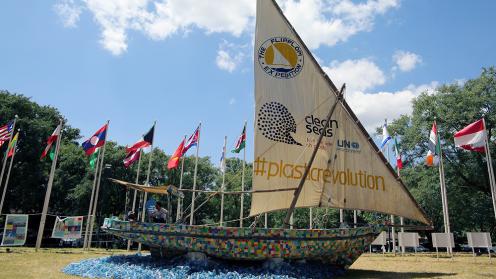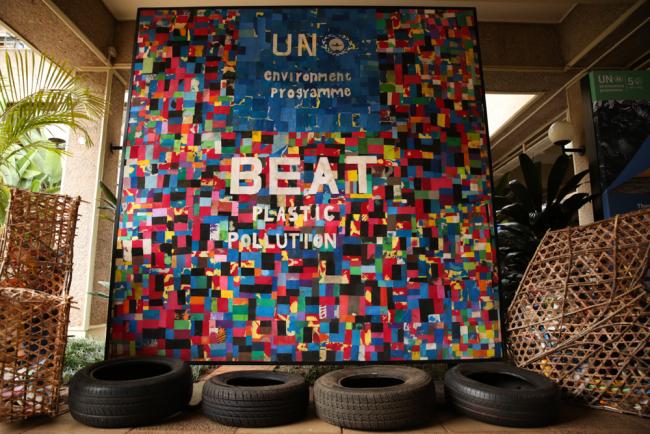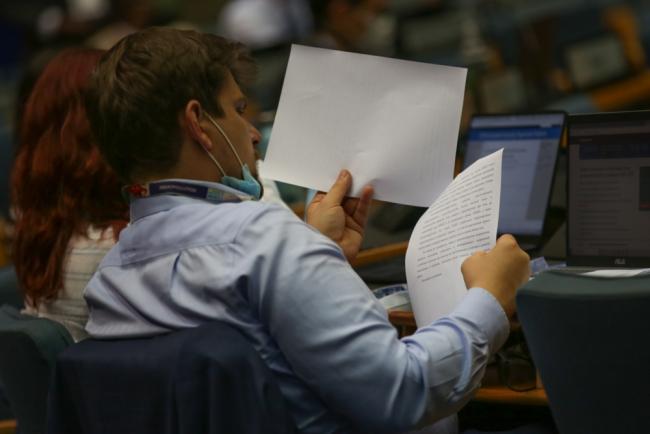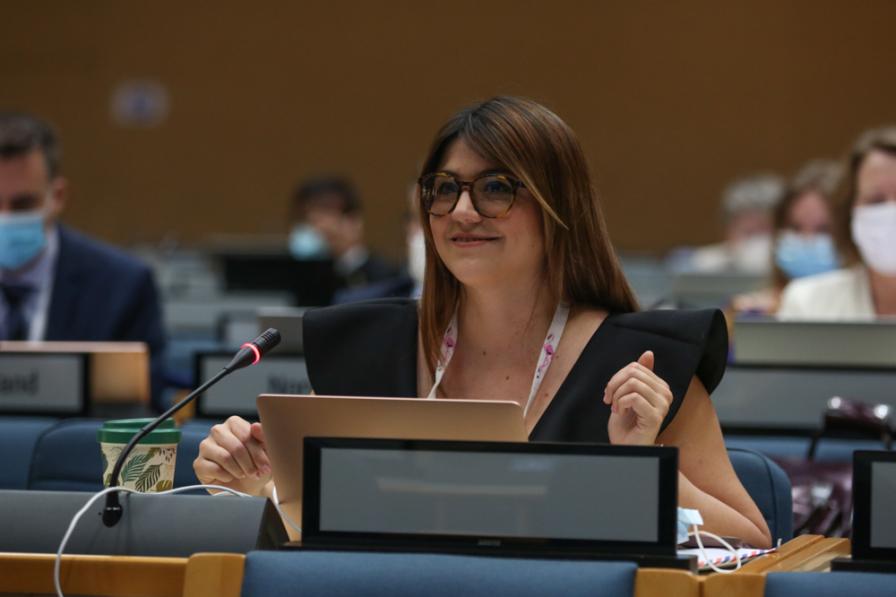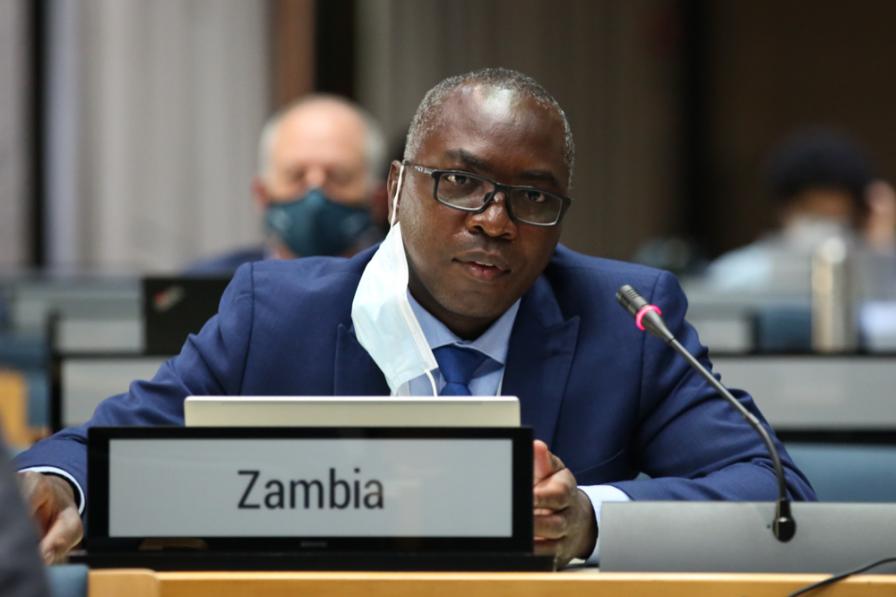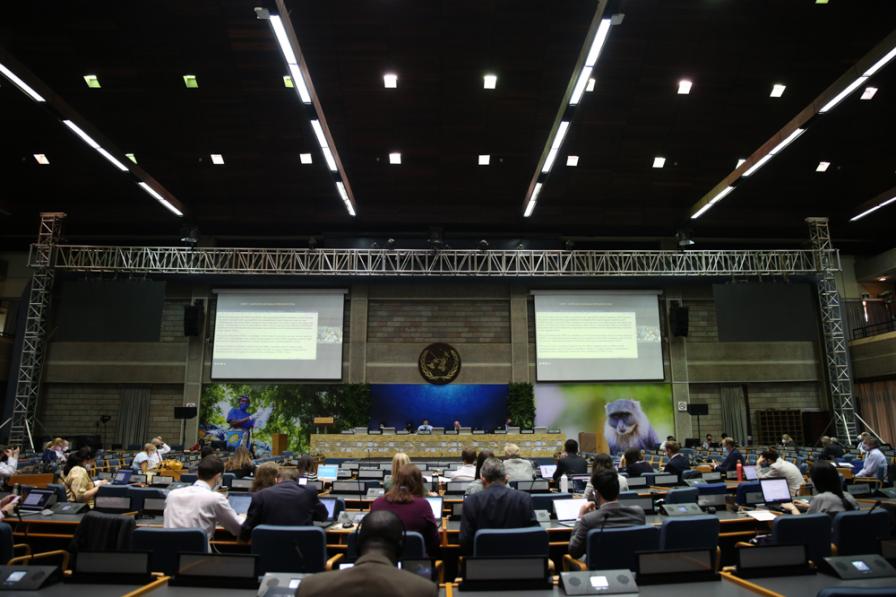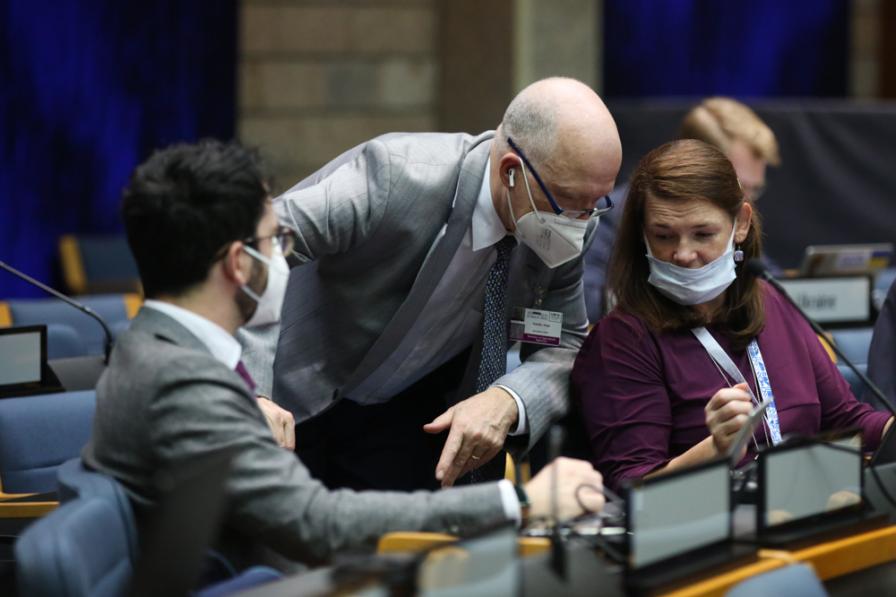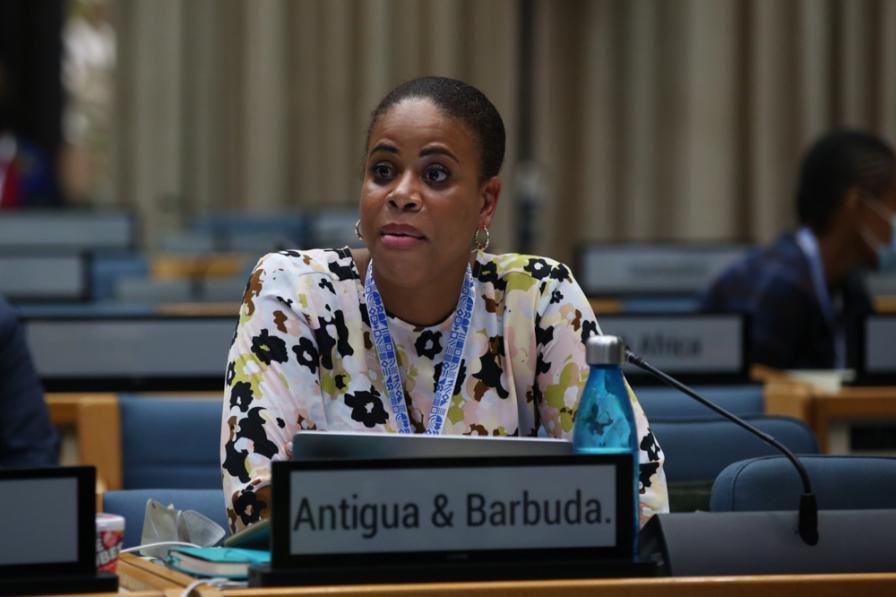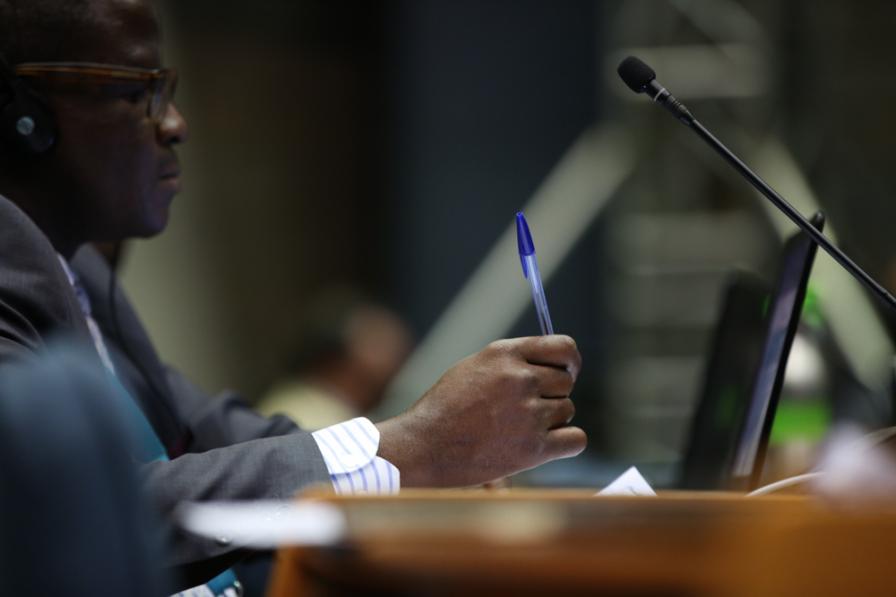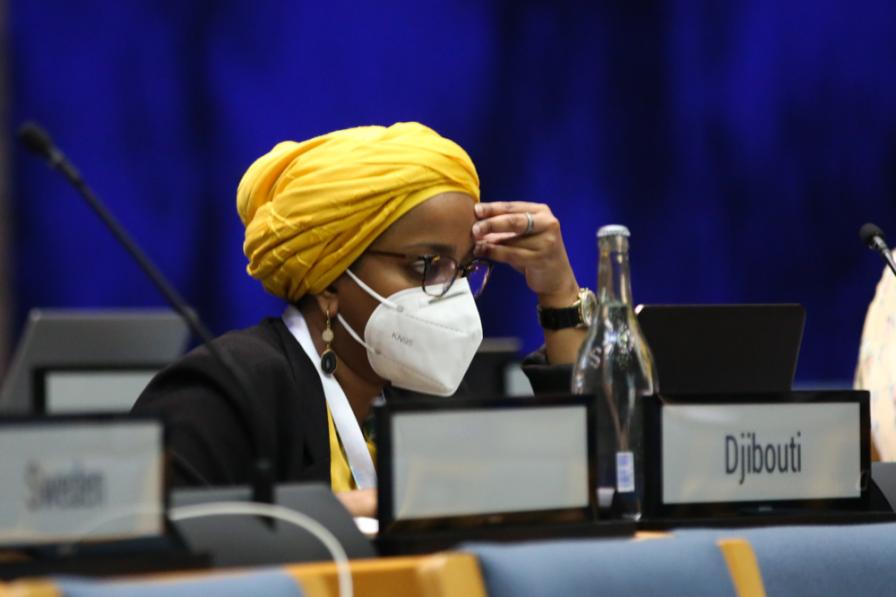On Tuesday, 22 February 2022, negotiations began in earnest on important yet delicate issues, engendering lengthy debates which lasted long into the night. Delegates met throughout the day in two informal working groups to address four different clusters of issues.
To go deeper, read the full daily Earth Negotiations Bulletin report.
Working Group 1 took the morning to consider Cluster 3 on chemicals, opening the discussion on a potential science-policy panel to support action on chemicals, waste and pollution, submitted by Burkina Faso, Costa Rica, Ghana, Mali, Niger, Norway, Switzerland, UK, and Uruguay. Even with the Intergovernmental Panel on Climate Change and the Intergovernmental Science-Policy Platform on Biodiversity and Ecosystem Services providing stellar examples of successful science-policy interfaces, some states highlighted the need to address the imperfections of these bodies upfront, particularly those flaws relating to representation of developing country voices, and inadequate financing. Delegates also had a first reading on a draft resolution on the sound management of chemicals and waste, submitted by Peru, Switzerland and Thailand.
In the afternoon, the Group resumed discussions under Cluster 1 on plastic pollution. They spent a considerable amount of time addressing the scope of a proposed intergovernmental negotiating committee on [marine] plastic pollution. They also considered a draft resolution submitted by India on a framework for addressing plastic product pollution including single-use plastics, with many calling for relevant parts to be merged with the Co-Facilitators' draft.
Working Group 2 opened discussions on Cluster 5, addressing procedural issues. An animated debate ensured over a draft resolution on compliance with the principle of equitable geographical distribution. Under Cluster 4, delegates opened discussions on all draft resolutions tabled, namely: sustainable and resilient infrastructure submitted by Mongolia; mineral resource governance by Switzerland, Argentina, Democratic Republic of Congo, Ghana, and Senegal; the Green Recovery by the African Group; and circular economy, by the African Group. Although the group only made limited progress on each of these resolutions, one delegate expressed satisfaction that “at least each got some airtime.”
To receive free coverage of global environmental events delivered to your inbox, subscribe to the ENB Update newsletter.
All ENB photos are free to use with attribution. For UNEA-5.2, OECPR-5.2, and UNEP@50, please use: Photo by IISD/ENB Kiara Worth.
